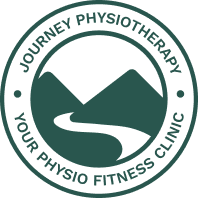2019 Learning Plan
I like to think I have been selective with the courses I have taken…but sadly I jumped on the dry needling band wagon and spent a lot of money on a treatment I no longer use. To see why I have moved away from this modality see my two blogs, here and here and this article written by John Quinter. Whether you are a new grad or a seasoned therapist, reflecting on your needs and interests will guide your yearly learning plan.
With a baby on the way I want to keep things as simple as possible. No weekend courses, no travelling, no conferences. Growth doesn’t happen in just one year so I am happy to slow things down and keep it simple. I think you learn more this way any how.
The areas of practice I find both interesting and of high value are: patient therapist interactions, pain, and training principles. As therapists we need to connect with our patients. Books are an incredible tool to improve your empathy and knowledge of different social backgrounds, perspectives and history. I think a good fiction is indispensable.
Our ability to interact, ask good questions, and listen can be improved with practice and expanding our knowledge in the field of motivational interviewing, coaching, and psychology.
Patients often come to us in pain. The more we understand of the bio-pyschosocial nature of pain the better equipped we are to deal with the unique needs of each individual patient. The more metaphors, stories, and pictures we have the easier it is to connect and land the right teaching moment. Not everyone wants information, but someone will and its important for us to be ready.
Patients also come to us to get healthier. To some degree every patient we see wants to healthier – just the areas differ. This can be through lessening pain (as above) or through strength, nutrition, or lifestyle behaviours. By studying the principles of training (all systems) we can offer patients clear guidance. We can’t and shouldn’t be expected to have the knowledge of a dietician but we should know the basic principles to healthy eating. And finally lifestyle behaviours can impact all parts of our recovery. Knowing how to identify, discuss, plan or refer for more help we can offer our patients comprehensive care.
If we have connected, listened, and focused on the needs of our patient we then need to help them plan and engage in a new health process. If we utilize technology, offer support, and plan well, we are more likely to see change in the short term and ideally in the long term.
With my care model outlined I have developed a reading list to improve my skills in these areas.
Connect
The narrow road to the deep north
How to live: A life of Montaigne
Leisure: the basis of culture
Interact
Pain
SOME Reading list (comprehensive list of journal articles)
Continue with Explain pain Supercharged
Training
Lifestyle
I work on my own so I make a concerted effort to get for a coffee with someone every 1-2 weeks. A reading buddy is something I would love to have but I haven’t been able to get it organized just yet.
I hope this inspires a year of learning. Cheers
Dave
